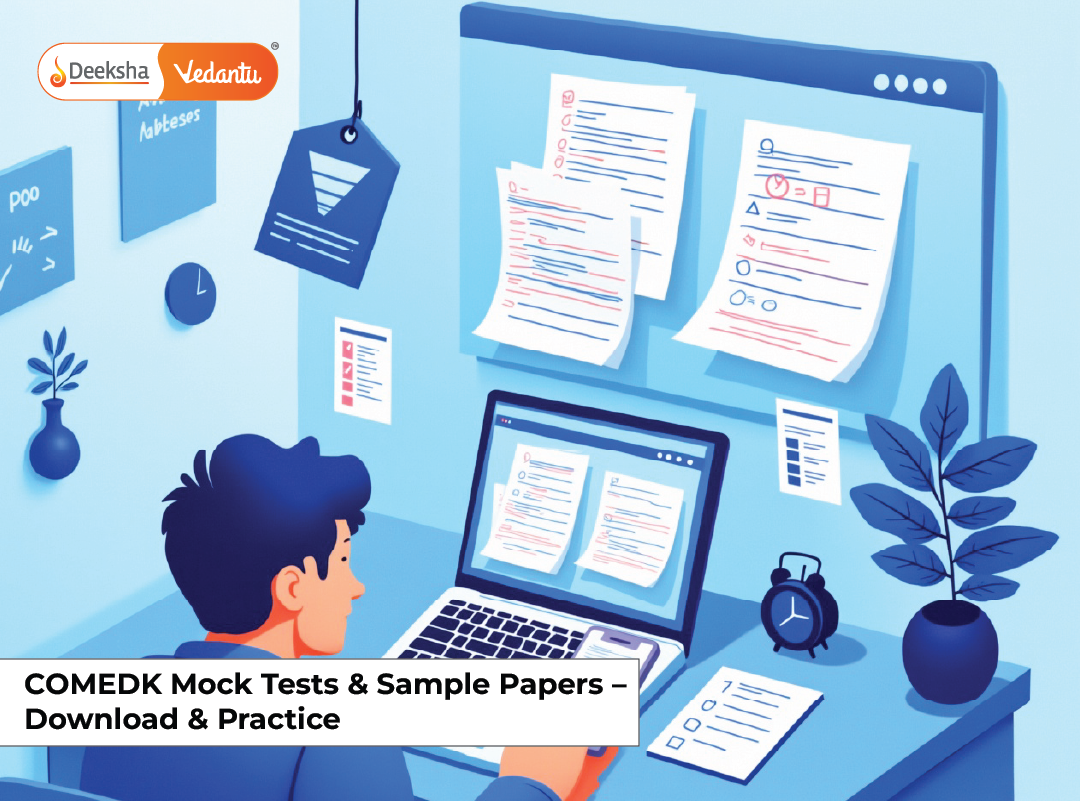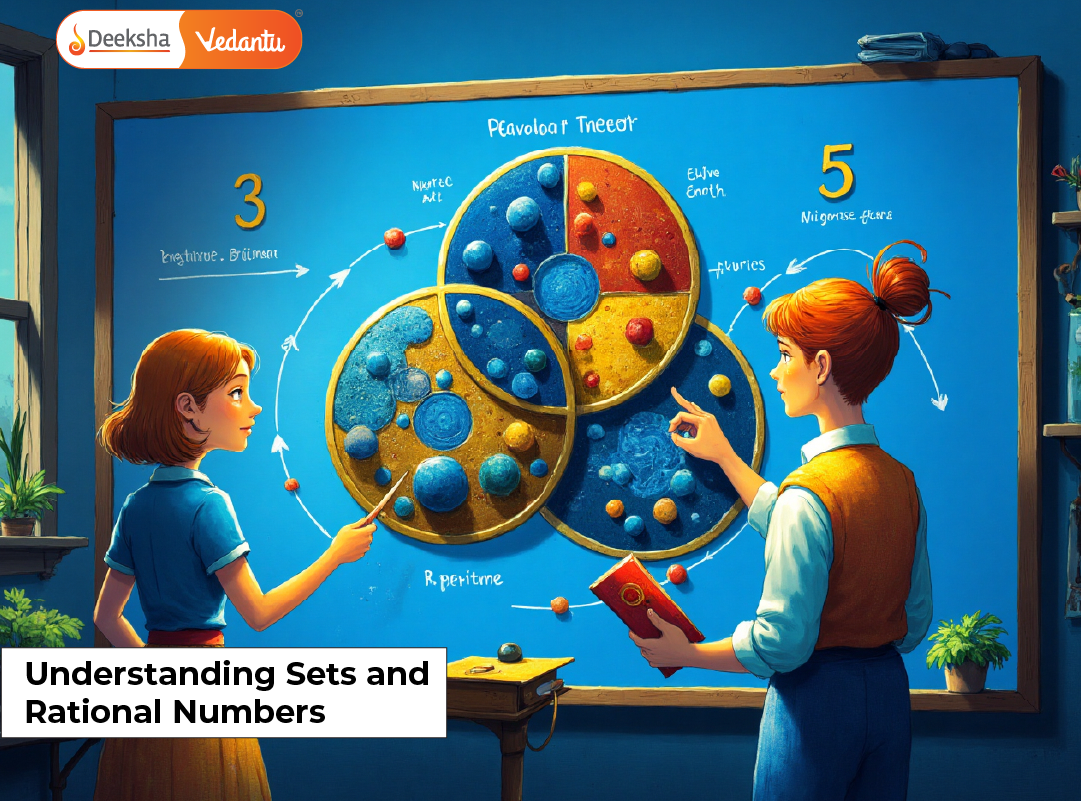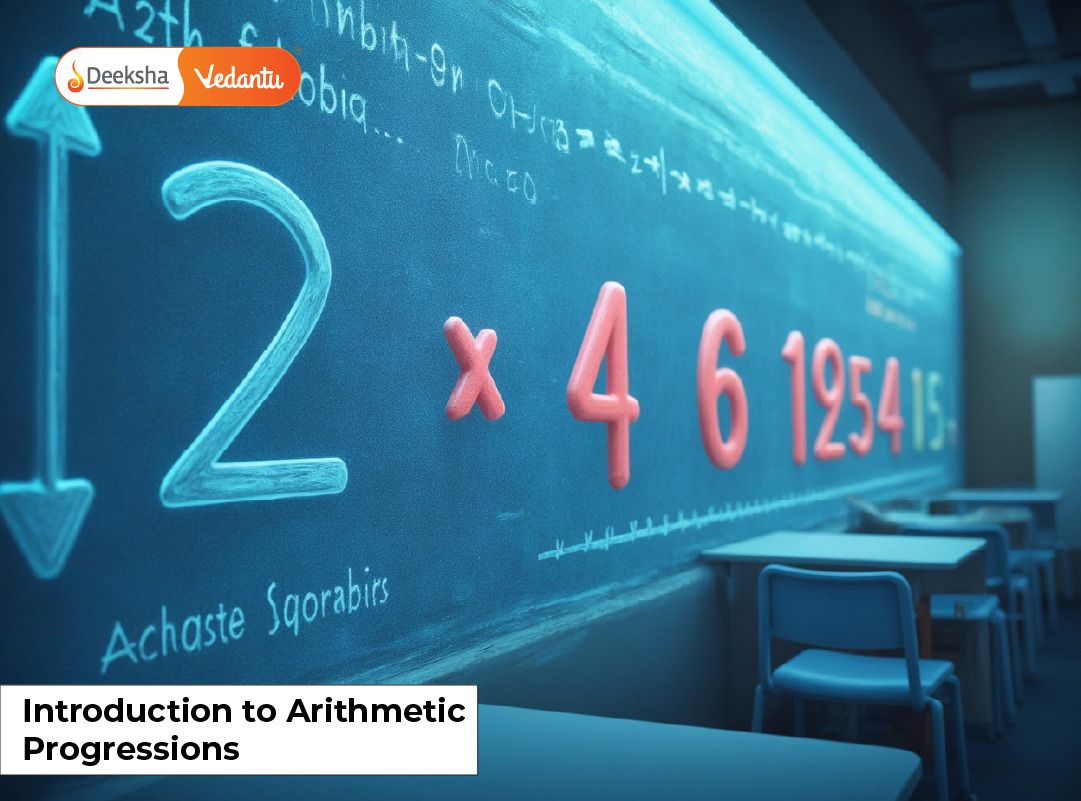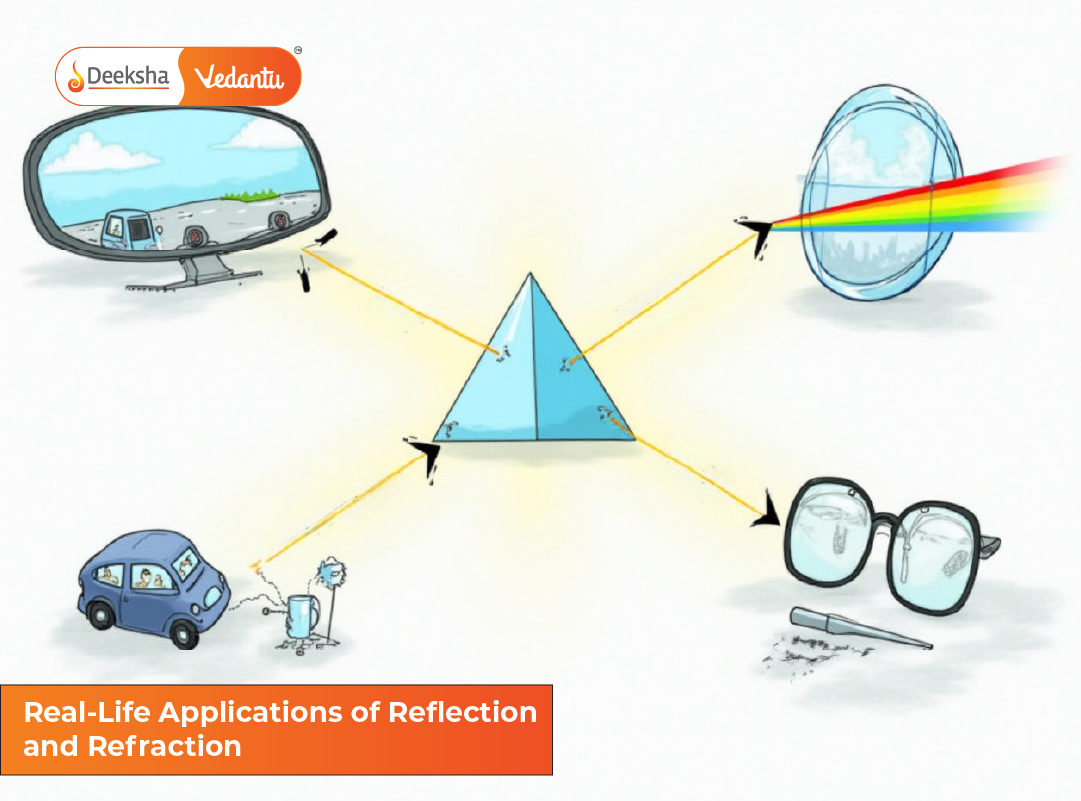Preparing effectively for the COMEDK UGET requires much more than just completing the syllabus—it involves mastering the exam’s structure, building speed and accuracy, and learning how to avoid errors under timed pressure. Mock tests and sample papers are crucial tools that replicate the real exam atmosphere and train students to face the actual challenge confidently. These tools not only enhance performance but also provide insight into areas that need improvement.
In this extended guide, we’ll explore why mock tests are indispensable, the various types of practice materials available, strategies to make the most of your practice, and how Deeksha Vedantu helps students through a structured and outcome-driven mock test program.
Why COMEDK Mock Tests Are Essential
Mock tests are more than just practice—they form the foundation of smart preparation:
- Understanding the Format: COMEDK consists of 180 multiple-choice questions—60 each from Physics, Chemistry, and Mathematics. Each question carries one mark, with no negative marking.
- Time Management: With 180 questions in 180 minutes, you get only one minute per question. Practicing with mock tests trains your brain to allocate time wisely across all subjects.
- Strategic Practice: Mocks expose the areas where students tend to make conceptual, careless, or interpretation errors. Analyzing these errors creates a path for targeted revision.
- Building Mental Endurance: Being able to maintain full concentration for three hours is a skill. Taking frequent mock tests helps build this stamina over time.
- Exam-Day Simulation: Mock tests help reduce anxiety by familiarizing students with the pressure and environment of the actual test.
Types of COMEDK Practice Resources
1. Full-Length Mock Tests
These mimic the actual COMEDK exam. Each paper consists of all three subjects with 180 questions. Attempting them under exam-like conditions helps students understand the pacing required for each subject.
2. Sectional Tests
Focused practice for individual subjects—ideal when a student wants to improve in just one subject like Physics or Chemistry. Sectional tests help break down weaknesses and allow a more concentrated study approach.
3. Chapter-Wise and Topic-Wise MCQ Sheets
These are essential during early to mid-stage preparation. Solving 30–50 questions right after completing a chapter ensures better retention and helps solidify key concepts.
4. Memory-Based Past Year Papers (PYQs)
Even though COMEDK does not release official question papers every year, memory-based questions are available through coaching centers and student feedback. These papers help in spotting frequently tested concepts and question patterns.
5. Mixed-Level Practice Sets
These combine easy, moderate, and difficult level questions across chapters. This prepares students for the unpredictable nature of the real paper where difficulty varies.
Where to Download COMEDK Sample Papers & Mock Tests
Here are trusted sources for authentic and reliable practice material:
- Deeksha Vedantu Learning Platform: Deeksha Vedantu provides its students with curated mock papers, computer-based test (CBT) simulators, and daily practice questions integrated with classroom learning.
- Official COMEDK Website (comedk.org): Though limited, sample formats and exam instructions are published occasionally.
- Entrance Exam Question Banks: NCERT-based books from reliable publishers like Arihant, MTG, and Oswaal offer a great mix of sample papers and topic tests.
- Online Portals: Edtech platforms often release free PDFs of mock tests during the final preparation phase.
How to Use Mock Tests Effectively
To get the most value from mock tests, use them strategically:
- Simulate Actual Exam Conditions: Attempt full-length mocks without distractions. Use OMR sheets or CBT interfaces to build familiarity with real test environments.
- Track Time Rigorously: Allocate 55–60 minutes per subject and try to stay within this limit during every mock.
- Thorough Analysis Post Test: Don’t just focus on the marks. Go through every question you got wrong or guessed and understand why.
- Log Mistakes in a Dedicated Journal: Create a notebook that records errors with chapters, reasons, and correct methods. Update this journal after each mock.
- Repeat Practice on Weaker Topics: Revisit concepts or chapters that consistently yield mistakes. Solve at least 20–30 new questions on them to reinforce learning.
- Compare Your Scores Weekly: Maintain a progress tracker showing your test scores, time per section, and improvement over time.
How Many Mock Tests Should You Attempt?
Here’s a recommended mock test schedule to maintain a progressive approach:
- 1st PU (Early Phase): Take one mock every 3–4 weeks. Emphasize chapter-wise MCQ practice.
- 2nd PU (Early to Mid): Attempt a full mock every 2 weeks and increase sectional tests.
- Post Pre-Boards (Feb to April): Take a full mock test every 3–4 days, followed by proper analysis.
- Last 15 Days Before COMEDK: Solve mocks every alternate day. Use the remaining days for rapid-fire revision and solving quick tests.
By exam day, completing 25–30 full-length mocks is ideal to ensure both confidence and competence.
How Deeksha Vedantu Supports Students with COMEDK Mock Practice
Deeksha Vedantu understands that mock tests are only effective when they are consistent, monitored, and followed up with action. That’s why Deeksha Vedantu integrates mock testing into its academic structure:
- Dedicated CBT Labs: Students get to practice in digital labs using interfaces similar to COMEDK’s online format.
- Weekly Mock Test Routine: Every Saturday is reserved for either a full or sectional test based on the academic calendar.
- Insightful Dashboards: Each student gets personalized performance metrics—time per question, accuracy per subject, and score progress over weeks.
- Targeted Remedial Classes: Students struggling with mock results receive topic-wise remedials to bridge knowledge gaps.
- Mock-Driven Crash Courses: After board exams, Deeksha Vedantu runs intensive revision programs that rely heavily on mock performance and tailored feedback.
With these tools and strategies, Deeksha Vedantu students are trained to treat mock tests not as evaluations—but as learning milestones.
FAQs
1. Are mock tests necessary for COMEDK even if I study NCERT thoroughly?
Yes. NCERT gives the foundation, but mock tests train you in speed, accuracy, and mental stamina under timed conditions.
2. How do I know if a mock test is of the right difficulty level?
Good mocks replicate COMEDK’s mix of easy, moderate, and tricky questions. Deeksha Vedantu’s curated mocks are calibrated for the right difficulty range.
3. Should I prioritize mock tests over PYQs?
Use PYQs for familiarization, but mocks should be your priority for consistent improvement and exam simulation.
4. I’m scoring low despite studying—what should I do?
Focus on detailed error analysis. Take fewer mocks but review each deeply. Seek support from mentors to fix root problems.
5. Can I download Deeksha Vedantu’s mock tests?
Yes, if you’re a registered student. Tests are available via Deeksha Vedantu’s online platform or accessible during in-campus CBT sessions.
Conclusion
Mock tests and sample papers are not optional—they are your preparation lifeline for COMEDK. They train your mind to process questions quickly, reduce exam anxiety, and build the confidence to perform under pressure. Each mock is an opportunity to learn, reflect, and improve.
At Deeksha Vedantu, our structured approach to mock testing transforms students’ preparation journeys. From day-one test exposure to final crash course simulations, we ensure every student is prepared to meet the COMEDK challenge head-on.
Start your mock test journey today. With each test, take one more step toward your engineering dream.
Table of Contents















Get Social